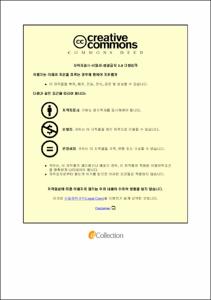직무 스트레스가 안전행동에 미치는 영향
- Alternative Title
- 특공부대 장병을 중심으로
- Abstract
- 본 연구는 군 조직 내에서 직무스트레스가 구성원의 안전행동에 미치는 영향을 분석함으로써, 군 특수조직의 안전관리체계에 대한 실효성 제고 및 정책적 개선방향을 제시하고자 하였다. 최근 군 조직은 고강도 훈련, 위계 중심의 명령체계, 폐쇄적 문화, 고립된 근무환경 등의 요인으로 인해 직무스트레스가 증가하고 있으며, 이는 장병들의 일상적 안전수칙 준수와 자발적 안전참여 행동에 부정적 영향을 줄 가능성이 있다. 이에 본 연구는 직무스트레스의 하위요인을 역할갈등, 업무과부하, 대인관계 갈등으로 구분하고, 이들이 안전행동(안전준수, 안전참여)에 미치는 영향을 실증적으로 규명하였다.
연구대상은 육군 특공부대 장병 313명을 대상으로 하였으며, 구조화된 설문지를 활용하여 데이터를 수집하였다. 측정도구로는 Karasek(1979)의 직무스트레스 척도와 Neal & Griffin(2006)의 안전행동 척도를 활용하였다. 수집된 자료는 R 4.3.2 통계 프로그램을 활용하여 신뢰도 분석, 상관관계 분석, 다중회귀분석을 실시하였다. 분석 결과, 역할갈등과 업무과부하는 안전준수 행동에 부정적인 영향을 미치는 것으로 나타났으며, 대인관계 갈등은 안전참여 행동에 통계적으로 유의한 부정적 영향을 미쳤다.
특히 역할갈등의 영향은 안전준수 행동에 있어 p < .01 수준에서 통계적으로 유의하였으며, 업무과부하는 p < .05 수준에서 유의성을 보였다. 대인관계 갈등 역시 p < .05 수준에서 안전참여 행동에 부(-)의 영향을 미치는 것으로 확인되었다.
이러한 결과는 군 조직 내 직무스트레스 요인이 단순히 개인의 심리적 불편감에 그치지 않고, 실제 안전행동의 저해요인으로 작용함을 보여준다. 본 연구는 이론적으로 직무스트레스와 안전행동 간 관계를 군 조직 특성에 기반하여 실증적으로 검증한 점에서 학문적 의의가 있으며, 실무적으로는 스트레스 저감 프로그램 도입, 부대 간 갈등관리 체계 구축, 리더십 기반의 심리적 지지체계 마련 등 정책적 시사점을 제공한다. 향후 연구에서는 장기적 추적조사나 사고 사례 분석을 통해 보다 심층적인 인과구조 분석이 요구된다.|This study aims to examine the impact of job stress on safety behavior among military personnel, with a particular focus on the unique characteristics of the Republic of Korea Army’s Special Forces. Recent organizational trends in the military—such as intense training routines, rigid hierarchical structures, and emotionally isolating environments—have led to heightened levels of occupational stress, which can significantly impair both compliance with safety regulations and voluntary participation in safety-related activities.
To analyze these dynamics, this study categorizes job stress into three sub-factors: role conflict, work overload, and interpersonal conflict, and investigates their influence on two dimensions of safety behavior: safety compliance and safety participation. Data were collected through structured questionnaires administered to 313 personnel of the Army Special Forces. The study employed established scales developed by Karasek (1979) for job stress and Neal & Griffin (2006) for safety behavior. The collected data were analyzed using the R 4.3.2 statistical software, employing reliability analysis, correlation analysis, and multiple regression modeling.
The results revealed that role conflict and work overload had significant negative effects on safety compliance, while interpersonal conflict negatively affected safety participation. Specifically, role conflict had a statistically significant negative impact on safety compliance at the p < .01 level, and work overload at the p < .05 level. Interpersonal conflict was also negatively associated with safety participation at the p < .05 level.
These findings demonstrate that job stress within the military context is not merely a psychological burden but also a critical factor undermining safe behaviors among service members. The study offers both theoretical insights—by empirically validating the relationship between job stress and safety behavior in military settings—and practical implications. These include the need for stress-reduction programs, conflict mediation mechanisms, and leadership-driven psychological support systems. Future research should explore longitudinal and case-based methodologies to deepen the understanding of causal relationships.
- Issued Date
- 2025
- Awarded Date
- 2025-08
- Type
- Thesis
- Files in This Item:
-
-
Download
 200000902653.pdf
기타 데이터 / 1.05 MB / Adobe PDF
200000902653.pdf
기타 데이터 / 1.05 MB / Adobe PDF
-
Items in Repository are protected by copyright, with all rights reserved, unless otherwise indicated.